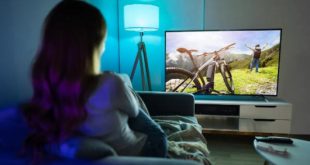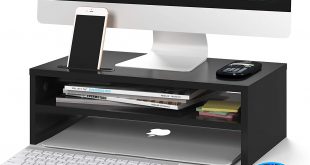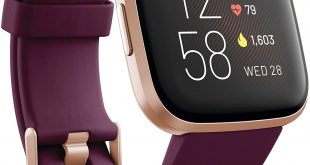
The BenQ ScreenBar Halo casts a pool of light on your desk that helps you concentrate, lets you see your working tools and papers better, and creates an unexpectedly cozy atmosphere around your Mac.
If you need more light where you work, it’s unlikely that your first thought will be to buy one that shines down onto that glassy, reflective monitor of yours. Yet BenQ’s Screenbar Halo sits atop that monitor, it shines down – and it’s excellent.
It’s an adjustable light in the sense that you can alter the brightness and physically tilt it to avoid glare. Even without any adjustment, the effect is that the ScreenBar Halo creates a pool of light on your desk, whatever size desk or monitor you have.
Without reflecting on the screen, the light still makes everything particularly bright right underneath it, where you have your keyboard. The light then gets progressively dimmer away from that central point, if subtly.
On murky days, any papers you’re working from on the desk are now perfectly clear and usable.
In the evenings, when you probably shouldn’t still be sitting at your desk, the ScreenBar Halo keeps you focused and concentrating. At the same time, it keeps you feeling comfortable, even cozy.
There’s a sense of you and your Mac being in a little bubble, separated from everything around you.
More specifically, perhaps more quantifiably, it also seems to reduce eye fatigue from screen glare. Part of that may be from the diffuse rear light pointing from the ScreenBar Halo to behind the desk, which creates a cocoon feeling.
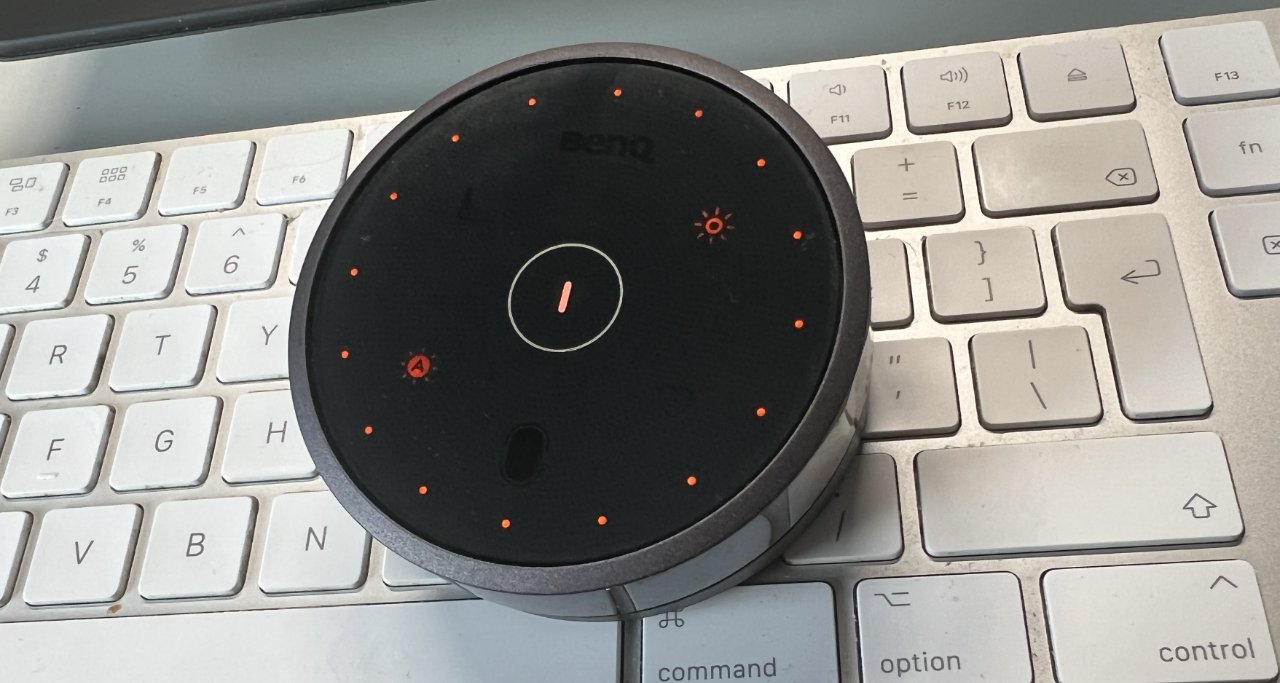
ScreenBar Halo has a wireless remote control.
What’s provided
The BenQ ScreenBar Halo arrives in a few parts. There’s the light itself, a USB cable connecting the unit to your Mac or a power source and a separate, wireless remote control.
This wireless remote is the clearest difference between the ScreenBar Halo and its predecessor, the ScreenBar. That older model featured a dial physically connected to the light by a cable.
This is all meant to be used at your desk instead of halfway across an office, so the wired-in dial control with its short cable was fine. But the wireless remote one is handier because you can more easily push it aside when you’re not going to be using it.
Controls
That new wireless remote is the only way to control the light. Powered by three AAA batteries, the remote is a dial with a touch panel front.
To use the remote, you first hover your hand above the device, which turns on a single red light. Then tapping that red light switches on the ScreenBar Halo.
Tapping it also briefly lights up other control options. There are buttons to do with brightness, temperature, and storing your favorite combination of these.
It’s not easy to see any of the buttons until you tap on them because that’s chiefly when they light up. However, you get used to where they are – and aside from the central one, you won’t tend to use the controls very often.
When you do, though, one aspect will keep throwing you. There is a series of red dot lights around the circumference of the remote’s face, but they are indicators rather than controls.
The more red dots you see, the brighter the ScreenBar Halo’s light is. But while everything else on that face is touch-controlled, the way you manage the light level is to twist the top of the remote physically.
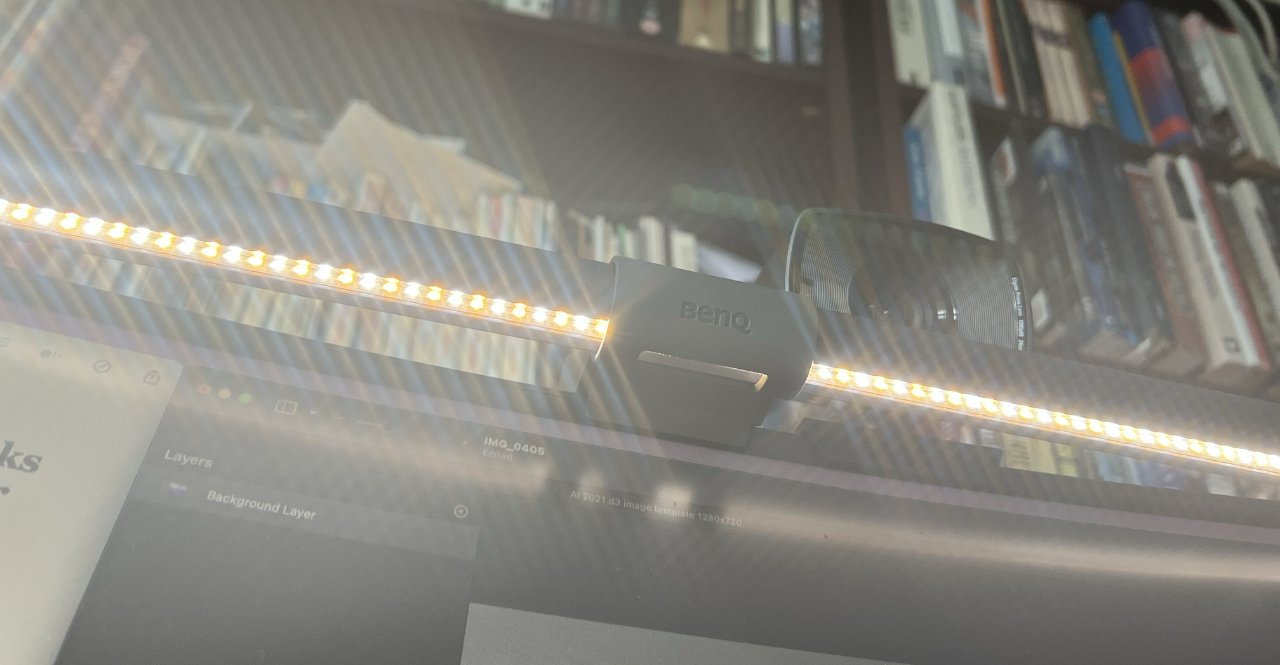
As bright as the LEDs are, the ScreenBar Halo is designed so all of that light heads down onto your desk, you never notice the individual lights
Positioning the ScreenBar Halo
The ScreenBar Halo is designed to sit atop a monitor, and it goes across that top like a small saddle. There is the main light in front of the screen, an adjustable connecting bar, and a counterweight behind the screen.
In theory, this means you can adjust the ScreenBar Halo to fit onto any monitor. In practice, it just seems to fit anyway.
Even with a curved monitor, the ScreenBar Halo balanced without adjusting.
It can be so straightforward to just pop the light on top of the screen that you miss that there’s more to its back than just having a counterweight. The back of the ScreenBar Halo includes a second light.
That second light is a diffuse, stubby block rather than a second elongated bar. It doesn’t have to be switched on, and it isn’t by default, but depending on your environment, it can be a good addition.
The backlight shines out onto whatever is behind your desk. If you’re in a shared workspace, that may mean shining into someone’s face, but when it’s a wall or a shelf, the shining second light casts a rather comforting glow.
Main lights
That main light that shines down to your desk from above the monitor is the key. In use, you tend to forget about the backlight if you ever choose to use it.
The front one can take more adjusting to get right. That would, of course, be the case with any light, as you have to figure out how bright you want it and when you want it to be that bright.
With the ScreenBar Halo, though, there is one more aspect. The light itself connects to your Mac with a USB cable and USB-A connector, and it works best when it’s directly plugged in, not through a router.
It doesn’t sound like there can be any such thing as working best, not with a light either on or off. But when first connected, trying out different brightnesses raised an issue.
Although AppleInsider has not been able to replicate this problem since, at first, there was a faint flickering to the light. It was definitely something to do with the connection and the brightness levels because it vanished as soon as we adjusted the latter.
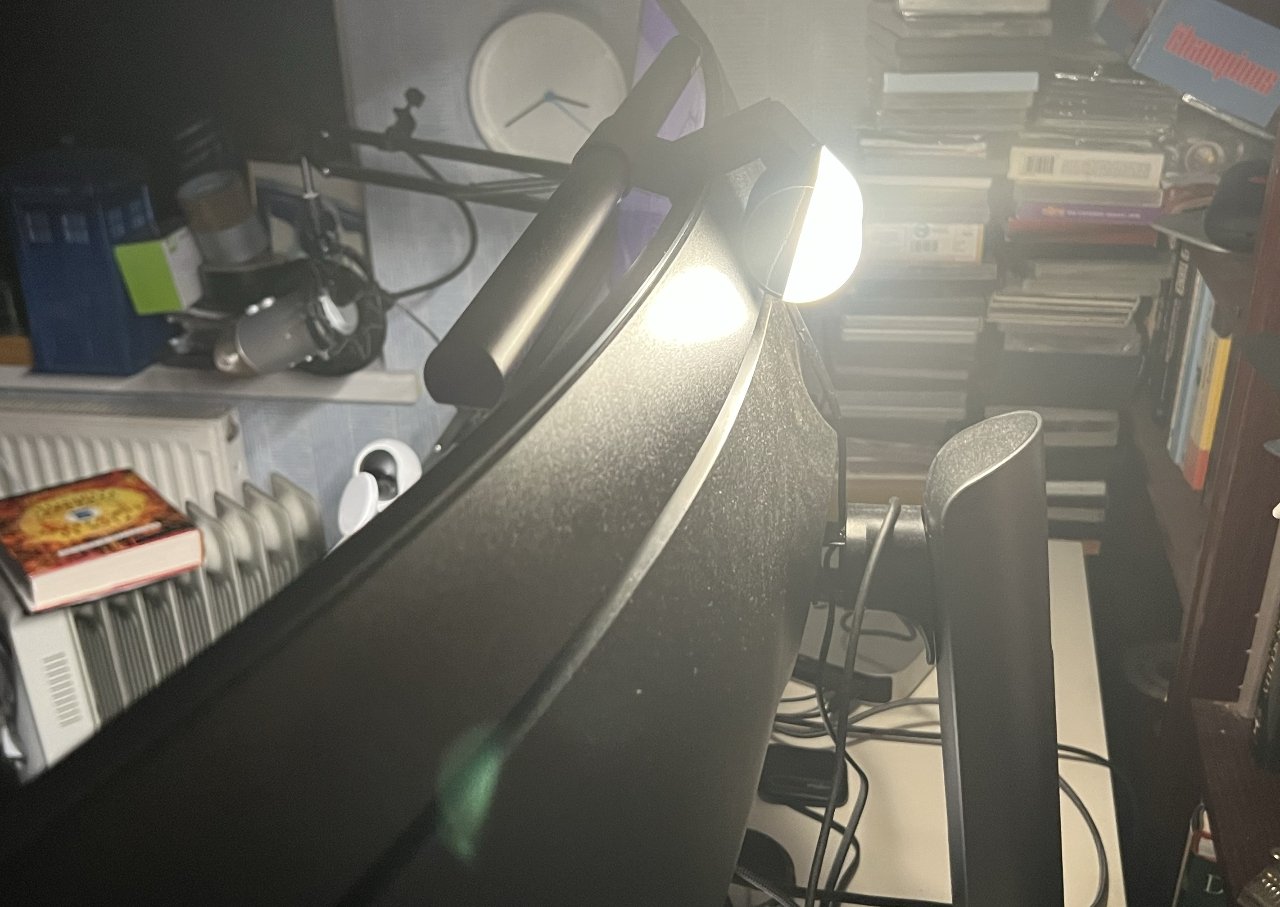
It’s up to you whether you want the rear light turned on or not, but it does add to the atmosphere as well as show us we need to tidy up
Should you buy
As long as your Mac setup is ever in an even slightly darkened environment, the BenQ ScreenBar Halo lifts your desk and lifts your mood.
If you only ever work 9 to 5 in a corporate office with bright lights, this isn’t of any use to you.
It’s also not worth upgrading from the previous version of the ScreenBar. The key difference between the two is that the new ScreenBar Halo’s control is a wireless one, and that’s handy, but not enormously so compared to the previous model’s wired one.
Since the light is connected into the Mac, it’s a shame that you can’t take advantage of that and use it in Shortcuts. It would be helpful to trigger a Shortcut that turned on Do Not Disturb, turned on the ScreenBar Halo’s light, and opened a particular Pages document that needs your attention.
The ScreenBar Halo is, though, much better than a desk lamp. Where its illumination might be the same, the ScreenBar Halo takes up no desk space at all.
Pros
- Provides a soothing pool of light that helps you concentrate
- Fits atop even curved monitors
- The brightness and temperature are easy to adjust
Cons
- Can only be operated through its own wireless control
- It takes a while to get used to that wireless control
 Richtheway.com Beauty, Digital, Fashion, Jewerly, Camera, Home.
Richtheway.com Beauty, Digital, Fashion, Jewerly, Camera, Home.
